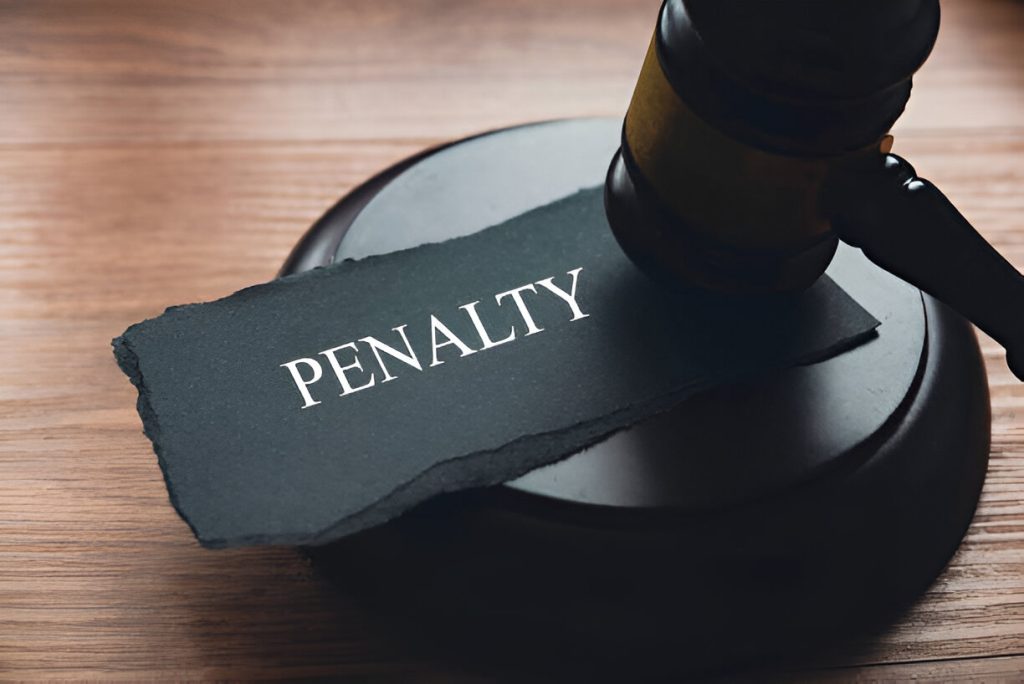Navigating the world of property ownership is like sailing a ship in stormy seas, and neglecting to have an Energy Performance Certificate (EPC) can be the iceberg that sinks your ship.
As a seasoned property owner, I’ve found that many are unaware of the heavy penalties associated with not having an EPC, which can scale up to a whopping £4,000 fine! It’s a legal requirement for most properties on the market in the UK, and yet it’s often overlooked.
So join me as we navigate these choppy waters together and figure out how to avoid this potentially costly oversight.
Can you guess who’s exempt from needing an EPC?
What are the penalties for not having an epc 2024
As we approach 2024, it’s crucial to understand the hefty penalties that landlords could face for failing to secure an Energy Performance Certificate (EPC) for their properties. It’s been mandatory since 2008 for landlords to have an EPC before selling or letting out a property. The law tightened further in April 2018, requiring properties to achieve a minimum ‘E’ rating to be rented out. Landlords failing to comply could face fines up to £4,000.

EPCs provide valuable information for tenants on energy efficiency and potential improvements. Additionally, since April 2016, tenants have had the right to request energy-saving upgrades. Compliance isn’t just about avoiding fines; it’s about creating better, more energy-efficient homes for tenants. It’s a legal obligation that I strongly advise all landlords to fulfil.
When is an EPC not required
While it’s critical for most properties to have an Energy Performance Certificate (EPC), there are certain types of buildings that are exempt from this requirement. Specifically, listed buildings with upgrade restrictions, buildings used for religious activities, and temporary structures used for two years or less don’t require an EPC.
Further, detached buildings under 50 square meters and industrial, non-residential agricultural buildings with low energy demand also fall into this exemption category. It’s crucial to understand these exceptions to avoid unnecessary expenditure and legal complications.
However, for the vast majority of properties, especially those being rented or sold, acquiring an EPC is mandatory and non-compliance can lead to hefty fines. Remember, staying informed is your best defense against potential legal issues.
Can you evict a tenant without an EPC
In light of the legal obligations attached to the Energy Performance Certificate (EPC), it’s crucial to note that evicting a tenant without having an EPC can potentially lead to serious legal complications. The EPC is a legally mandated document for landlords, and its absence can be considered a violation of tenancy laws.
If a dispute arises, the lack of an EPC could undermine a landlord’s position, potentially leading to legal penalties including hefty fines. Moreover, if the tenant challenges the eviction in court, the absence of an EPC may weaken your case.
Therefore, it’s essential to secure an EPC before entering into a rental agreement, to ensure a smooth tenancy and avoid unnecessary legal troubles.
Do I need an EPC for an existing tenancy
Shifting our discussion to existing tenancies, it’s important to understand that an EPC is indeed necessary, even if the tenancy agreement was established prior to the EPC regulations. This requirement applies to all properties, regardless of when the tenancy started.

Let’s clear up any misunderstandings: If you’re renting out your property, you’ll need an EPC, even for ongoing tenancies. The only exception is if your property is one of the few exempt types.
Remember, this isn’t just a formality. An EPC gives you and your tenant valuable information about the property’s energy efficiency, and it’s a legal requirement. Failing to provide one could land you hefty fines.
When is an EPC not required for residential property
There are certain instances where a residential property might be exempt from needing an Energy Performance Certificate (EPC). For instance, listed buildings with restrictions on upgrading are exempt as the performance enhancement measures might alter their character or appearance. Buildings used for religious activities or temporary structures intended for use less than two years also don’t need an EPC. If you have a detached building with a total usable floor area of less than 50 square meters, it’s exempt too.
Notably, industrial sites, workshops, and non-residential agricultural buildings with low energy demand aren’t obliged to have an EPC. Understanding these exemptions can help you to navigate the complexities of EPC requirements more efficiently.
What information is required for an EPC
While understanding exemptions to the EPC requirement is important, it’s equally vital to know what information is necessary when you do need an Energy Performance Certificate.
To obtain an EPC, you’ll need to provide an accredited assessor access to your property. They’ll inspect elements like insulation, heating, and lighting systems.
The EPC provides an energy efficiency rating from A (most efficient) to G (least efficient). It also includes estimated energy costs and carbon emissions, and suggestions for enhancing energy efficiency.
It’s crucial to note that EPCs are valid for ten years unless significant renovations occur. If renovations happen, you’ll need a new assessment to reflect the updated energy performance.
Frequently Asked Questions
How Often Should an EPC Be Renewed?
An Energy Performance Certificate (EPC) should be renewed every 10 years. However, if you’ve made significant energy-related improvements to your property, it’s advisable to get a new EPC to reflect these changes.
How Does an EPC Rating Impact the Value of a Property?
An EPC rating greatly impacts a property’s value. Higher ratings, indicating energy efficiency, make a property more attractive to buyers and tenants, potentially increasing its market value due to lower energy costs and environmental impact.
What Happens if the Energy Efficiency of My Property Improves After an EPC Has Been Issued?
If my property’s energy efficiency improves after an EPC’s issued, I’d need to get a new EPC to reflect these changes. The old EPC remains valid, but won’t accurately represent the property’s improved efficiency.
How Can I Find an Accredited Energy Performance Assessor to Obtain an Epc?
To find an accredited Energy Performance Assessor, I’d check the government’s online database. It’s crucial to ensure they’re certified for accurate evaluation and valid EPC. Always compare prices and reviews before hiring.
What Are Some Common Recommendations Given by Assessors to Improve a Property’s EPC Rating?
Common recommendations I’ve seen include improving insulation, upgrading to energy-efficient appliances, installing double glazing, and incorporating renewable energy sources like solar panels. It’s all about reducing energy use and carbon emissions.
Conclusion
In summary, the EPC is a crucial document for any property owner, landlord, or tenant in the UK. Neglecting it could lead to hefty fines and legal complications.
Not all properties require one, but understanding when it’s needed and the information it requires is essential.
Don’t risk a £4,000 fine or the ability to rent or sell your property – familiarise yourself with the EPC, its requirements, and its importance.
Stay informed, stay compliant.










